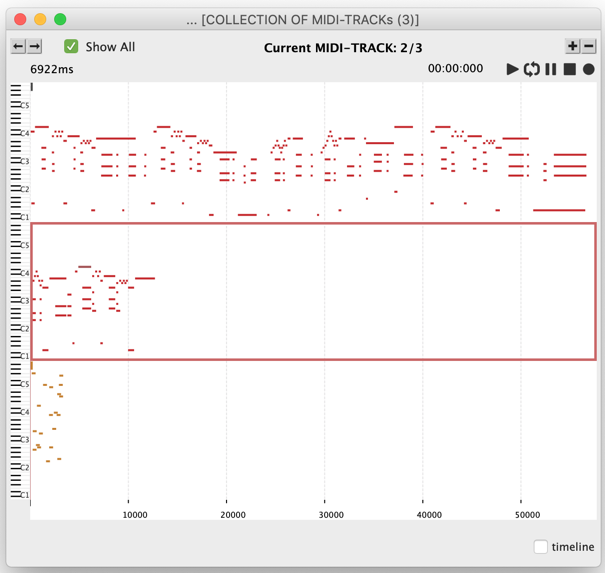OM# Documentation
MIDI-TRACK
The class MIDI-TRACK is a container for MIDI events. It contains a sequence of objects of type MIDI-NOTE or MIDIEVENT.
The class
MIDINOTE
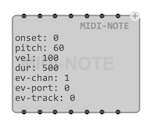
MIDI-NOTEextends theMIDIEVENTwith a number of attributes which make it easier to process in maniuplate withMIDI-TRACKs. In addition the the usual MIDI attributes,MIDINOTEhas dedicated slots forpitch,vel, anddur. Internally these are converted toMIDIEVENTsof typeKeyOnandKeyOff.
Create a MIDI-TRACK
MIDI-TRACK can be initialized either by connecting a list of MIDIEVENT and/or MIDI-NOTE to the midi-events input slot, or by connecting a compatible object on the self input (first input) for automatic conversion.
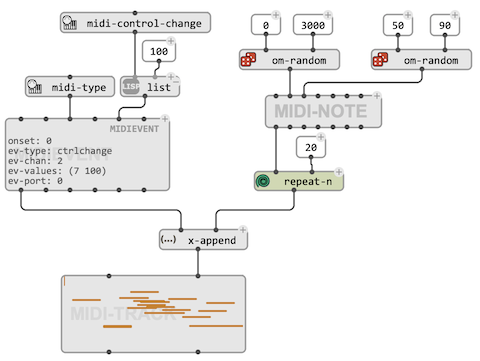
Note: Other MIDI events than notes are signified by small rectangles at the top of the miniview and editor displays, but are not editable.

A MIDI file can be loaded by connecting a pathname to self. If the value of self is :file, then the evaluation of the MIDI-TRACK box will open a file-chooser dialog for loading a MIDI file.
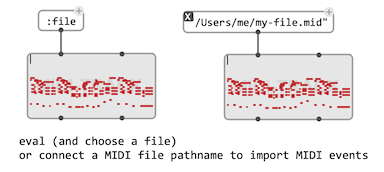
Compatibility
MIDI-TRACKcorresponds, and extends the features of theMIDIFILEclass in OpenMusic. The difference from OM’sMIDIFILE, is that theMIDI-TRACKis not attached to a file and actually contains/internally stores the data as list of MIDI events.Loading an OM patch containing a MIDIFILE will automatically convert it into a
MIDI-TRACK, however, theselfinput might need to be set to :file and/or the file contents reloaded to obtain the exact same configuration.
Editor
The editor of MIDI-TRACK displays and allows editing MIDI-NOTEs as a “piano-roll” representation.
Transpositions, time and duration edits, note addition or removal are allowed and performed with the usual commands, as well as playback, zoom-in and -out, and other time modifications using the timeline editor option.
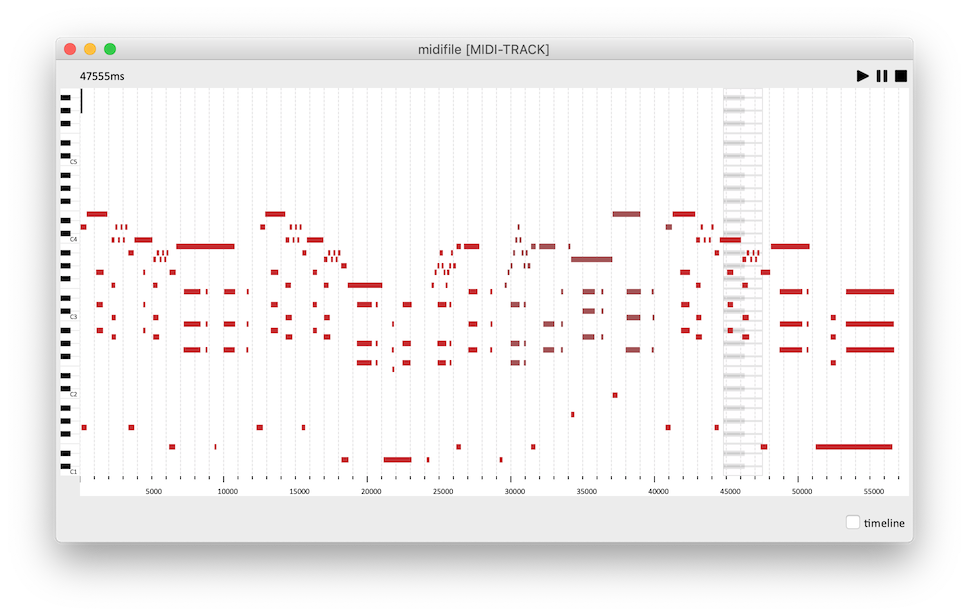
Collections
The MIDI-TRACK editor supports integration in the COLLECTION editor, where several MIDI-TRACK objects can be visualized and played.
